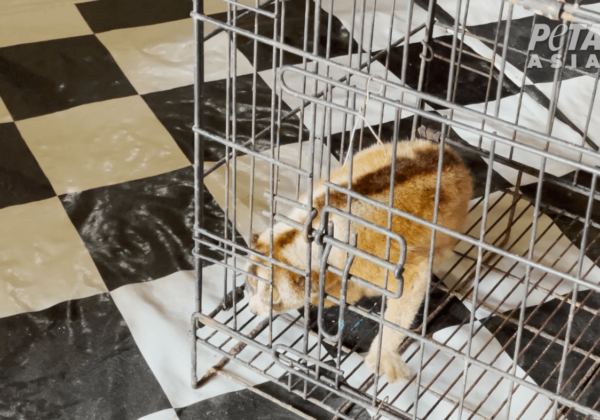Captivity Kills Great White Shark Who Spent Three Days in Aquarium
A great white shark died just three days after arriving at the Okinawa Churaumi Aquarium in Japan. The animal had been taken from his ocean home on Tuesday, January 5, and was dead by Friday, January 8. He was the only captive great white in the world.
A worker at the aquarium told The Wall Street Journal that the animal wouldn’t eat and was crashing into the tank walls. On the third day of his imprisonment, he suddenly sank to the bottom of the tank and attempts to revive him failed.
This video shows how the great white shark at the Okinawa Churaumi Aquarium swam in endless circles around the tank, refusing to eat as he was gawked at by visitors during his three days there.
Aquariums and marine parks are part of a for-profit industry built on the suffering of intelligent individuals. Many great white sharks who had previously been kept in captivity also deteriorated quickly and died there, and orcas, dolphins, and other animals suffer and die at aquariums all the time, often years or even decades short of their natural life expectancies.
The shark was obviously extremely stressed as a result of having everything natural and important to him taken away, which was clear from his weakened condition and abnormal swimming behavior. The cause of his death is clear: captivity. He didn’t have to die like this.
In the ocean, great white sharks can grow to 7 meters in length, swim at speeds of up to 50 kilometers an hour, and cover distances of thousands of kilometers each year—a feat that their captive counterparts would never be able to match. No great white shark has ever successfully been kept in captivity for even a year. Aquariums are a relic of the past, and it’s time for the government to shut them down.
What You Can Do
Don’t patronize aquariums, marine parks, or zoos, in which animals are used as commodities to boost revenue. Encourage your friends to choose humane activities such as whale-watching, scuba diving, and snorkeling to observe animals without disturbing them.









